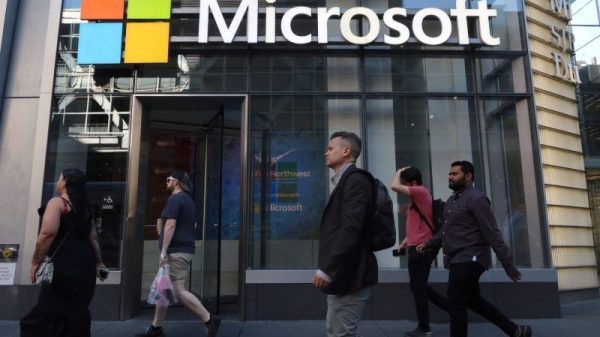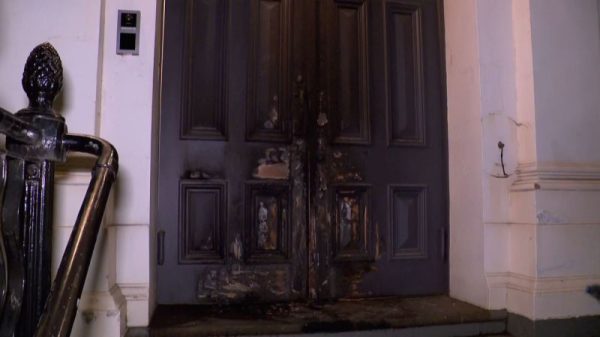Adam Smith celebrated the fact that commercial infrastructure emerged to facilitate and expand the division of labor, even though no one did anything specifically intended to bring such institutions about. As Smith put it,
This division of labor, from which so many advantages are derived, is not originally the effect of any human wisdom, which foresees and intends the general opulence to which it gives occasion. It is the… consequence of a propensity in human nature … to truck, barter, and exchange one thing for another…
How much are things worth? Smith did not yet have the tools developed by Karl Menger, including marginal analysis and subjective value, but Smith’s simple summary got it mostly right:
[Value] is adjusted… by the higgling and bargaining of the market, according to that sort of rough equality which, though not exact, is sufficient for carrying on the business of common life.
I have become interested in the increasing space of “higgling and bargaining” focusing on sharing, rather than owning. Percy Whiting, in his 1947 book The Five Great Rules of Selling, pointed out a piece of wisdom that has become a trope in advertising. My preferred version of the insight goes like this: hardware stores sell ¼” drill bits, but what consumers want are ¼” holes.
The only reason I want a power drill is that I want two holes in this wall, right now, so I can hang a heavy framed painting. Owning a power drill is by far the cheapest way to accomplish that task. Unless, it isn’t.
At least, it was. What if I could share with others, using just the part of the power drill that I actually need to accomplish my chores? Almost everyone has a power drill, but many of those drills are likely used for only a few minutes per month (there’s a controversy over the exact number, because of course there is). The rest of the time, the drill gets stored along with all the other expensive, specialized tools most people rarely use.
When you think about it, the problem immediately becomes general. When I’m traveling, I have a firm rule: I never buy a car, because all I want is a ride to the airport so I can go home. I don’t want to own an apartment in that distant city, I just want a safe, clean place to spend the next two nights while I’m visiting. Owning is a clumsy, and expensive, way to get access to things, because I have a lot of capital tied up in the thing, and I have to pay to store it.
What if we could commoditize excess capacity? That is, if I have a durable capital good, and I’m not using it, or I’m not using all of it, could I rent out part of it? I get a revenue stream, and users get access to inexpensive temporary use of an expensive item. Now, there are problems: I have a black BMW 330, and it’s shiny. If I pull up beside someone walking on the sidewalk, and ask if they want a ride…well, it’s creepy. REALLY creepy. So I don’t do it. But it’s likely that there are some people who have a car, and a few minutes to spare. And there are other people who need a ride.
There is an app, called Uber, that allows people to commoditize their cars, by selling reliable, convenient, and (mostly) safe connections. AirBnB commoditizes apartments, and houses, selling off a slice of time to use the space.
There are two other durable asset commoditizing apps that many Americans have not heard of. The first, Turo, is a car rental platform that operates, among other places, at airports. Think about it: you pay $25 per day, or more, to park your car at an airport. At the same time your car is sitting there, other people are arriving in your city, and walking or being bused past your parked car to the Hertz, or Avis, lot where they pay $100 per day to rent a car. Turo turns your stored car into a commodity; if you can charge $60 per day from a renter, plus saving the $25 per day parking fee, both you and the person using your car are better off, and there are fewer cars sitting idle because now they are all being used.
The other app is my favorite example of commoditizing, because it is a pure saving of otherwise wasted resources. The app is called “BlaBlaCar,” and it’s…well, it’s hitchhiking.
Traditional hitchhiking is really inefficient. You have to go stand by the road, with your thumb out, and hope a car stops. You can’t really negotiate a price, departure time, or destination, and hitchhiking is as creepy as getting picked up in my BMW for a ride. But the fact is that an empty front seat, and for that matter an empty back seat, is a valuable commodity if we can find a way to sell it reliably and conveniently.
A BlaBlaCar transaction involves agreeing on four dimensions of a trip:
Where are you NOW?
Where do you want to GO?
What TIME?
How much do you want to TALK?
Suppose I’m in Brno, in the Czech Republic. I want to go to Prague (210 kilometers northwest) tomorrow morning at 9 am. And I like to talk some, but not constantly. So I would put myself down as “blabla” which means “enjoys a natter.” The lowest category, “bla,” means I don’t talk much, and would prefer the driver do likewise. The highest category is “blablabla,” which means I rarely pause speaking even to take a breath, and I’m happy if the drive is likewise voluble.
Now, in an Uber, that car and driver would not be going to the airport, or football game, unless I contracted with the driver for that trip. But in the case of BlaBlaCar, that truck driver or that commuter would be making the trip anyway, and at the same time. The only question is whether that other seat will be empty, or occupied. Many drivers like to have some company, and enjoy talking to people as long as they can be assured that after a couple of hours they can drop them off.
Taking a step back, the potential for commoditizing as a form of sharing is just starting to be appreciated. In many cities (take New York….please!) there are three lanes of cars on lots of streets. But two of those lanes are filled with cars that are empty. We are storing empty cars, in some of the most valuable real estate on earth. If all the cars, and apartments, have people using them, and all the tools have people making things with them, we will need far fewer of those things. We have “enough” stuff, it’s just in the closet. It’s time to bring all the useful things we already own out of the closet, so others can use them.





































